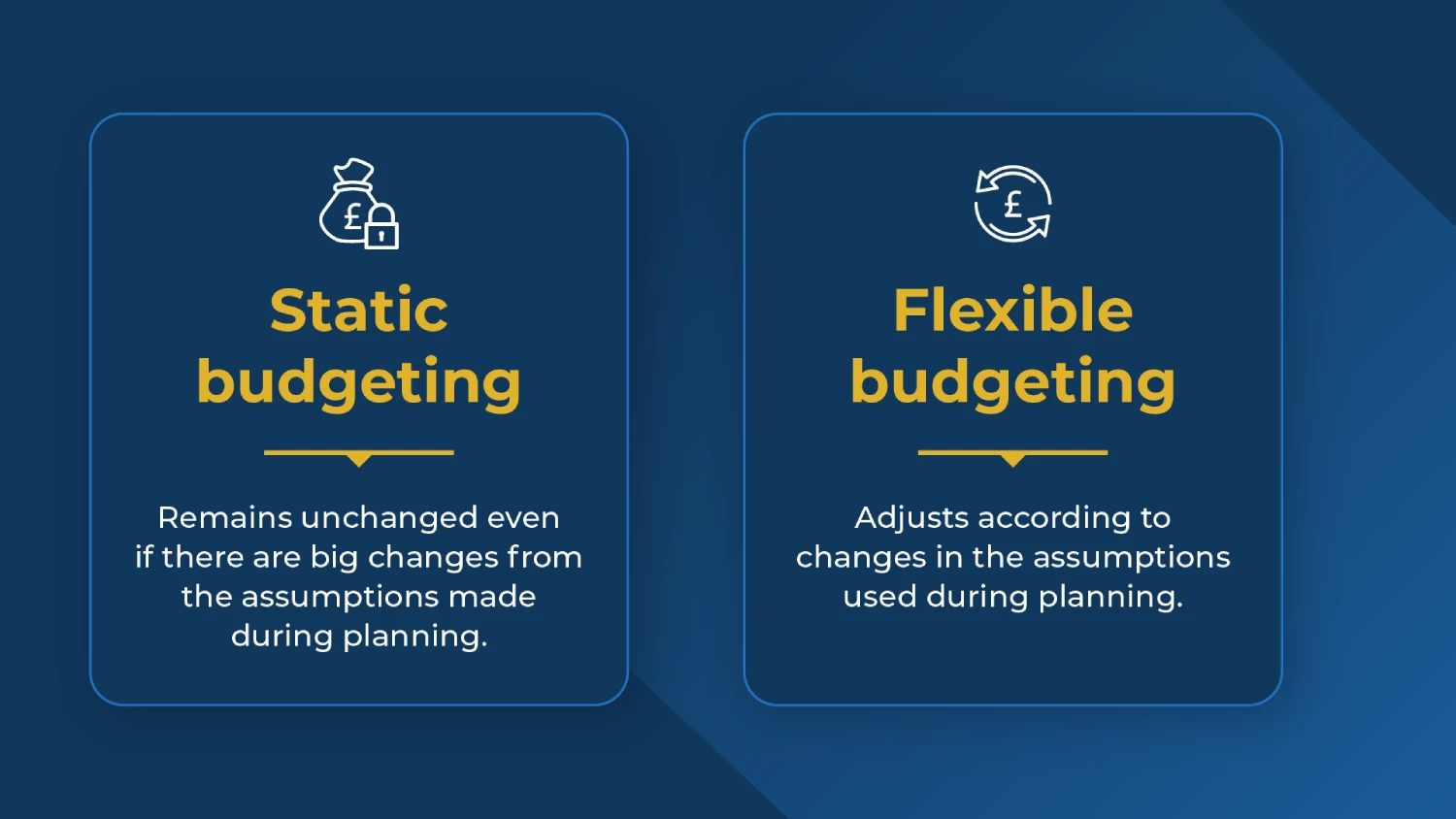The role of financial management is to help businesses or individuals make wise decisions about how to handle money. It involves tasks like budgeting, investing and planning for the future.
Studying UK taxation for financial management
Enhance your financial management knowledge with a UK taxation focus. Gain insights into tax laws and their impact on financial planning. Master tax principles and strategies.

In today's business world, the importance of managing finances effectively cannot be overstated. As companies navigate through ever-evolving tax regulations and economic landscapes, the demand for skilled professionals in financial management is constantly growing.
This demand is particularly evident in two key areas: small and medium-sized enterprises (SMEs) seeking their dedicated tax specialist and larger multinational corporations expanding their workforce.
Financial management in business involves making sure that a company's finances are handled wisely, enabling it to thrive while complying with laws and regulations. This requires both strategic planning and execution.
However, finding professionals with the necessary skills is becoming difficult, leading to a competitive job market where salaries are on the rise.
At its centre, financial management means creating a plan for a business and then making sure all departments of the business stick to that plan. Effective financial management lets the Chief Financial Officer (CFO) or Vice President (VP) of Finance provide information that helps make a long-term plan, decide where to invest and understand how to fund those investments, as well as manage liquidity, profitability, cash availability and other important factors.
Objectives
Building on these foundations, financial managers support their companies in various ways, including but not limited to:
- Making the most profit: They advise on aspects like increased costs of materials that might lead to higher prices for products.
- Keeping an eye on liquidity and cash flow: They make sure the company has enough money available to pay its bills.
- Following the rules: They stay updated on laws from the government and specific to their industry.
- Planning for different financial situations: They create plans based on how the business is doing now and what might happen in the future.
- Handling relationships: They work closely with investors and the company's board of directors. In the end, it's about utilising good management techniques to organise the company's finances.
What is the scope of financial management?
Let’s delve into the scope of financial management, covering everything from planning to budgeting and financial planning.
Financial management involves four main areas:
1. Planning
The financial manager predicts how much money the company will need to keep cash flow positive, invest in growth or new offerings, handle uncertainties and share this info with others in the business.
Planning can be divided into different types, including:
- Capital expenses
- T&E and workforce
- Indirect and operational expenses
2. Budgeting
The financial manager decides how to use the company’s available funds to cover expenses like rent, salaries, materials and employee expenses as per the UK tax system. Companies usually have a main budget and sometimes smaller ones to cover cash flow and operations. Budgets can be static or flexible based on planning assumptions.

3. Managing and evaluating risk
Business executives rely on their financial managers to assess and provide controls for various risks, such as:
- Market risk: This affects the company's investments and for public companies, its reporting and stock performance. It can also include industry-specific financial risks, like a pandemic impacting restaurants or changes in retail.
- Credit risk: This involves the impact of customers not paying their bills on time, which can affect the company's ability to pay its own bills and borrow money at good rates.
- Liquidity risk: Financial teams need to keep an eye on how much funds the company has now, predict how much it will need in the future and be ready to free capital when needed.
- Operational risk: This covers various risks, like the risk of a cyber-attack and whether to get insurance for it, having plans for disasters and knowing what to do if a senior executive is accused of misconduct or fraud.
4. Procedures
The financial manager establishes rules on how the finance team will handle and share financial data, such as invoices, payments and reports, ensuring it's safe and accurate. These procedures also clarify who makes financial decisions in the company and who approves them.
Why study taxation for financial management?
Tax accounting is very important when preparing and presenting financial statements for both individuals and businesses. It includes the rules and regulations to govern and report taxable income and how to handle different tax-related items in financial statements.
Studying taxation can offer many advantages to both individuals and organisations, including:
- Following tax laws: Learning about taxation helps individuals and organisations understand and follow the complicated tax laws and rules in their area.
- Avoiding penalties: Knowing tax laws can help avoid hefty fines for non-compliance.
- Planning taxes: Tax training provides individuals and organisations with the knowledge and tools to plan their finances and lower their taxes as per the UK tax system.
- Managing finances: Understanding taxation and its effect on money management helps individuals and organisations make smart choices and do well financially.
- Job opportunities: Understanding taxes makes candidates more appealing to employers.
- Career development opportunities: Tax training provides you with the skills to move up in jobs, especially in finance, accounting, or tax-related job roles.
- Credibility: Individuals and organisations with an understanding of taxes are often seen as more honest and reliable by clients, investors and government groups.
UK tax system

Tax is a form of financial charge. It can either reduce something you receive or own or add an extra cost to something you purchase.
Tax is not a penalty. Usually, governments collect taxes to have funds to spend for the betterment of society. This could include:
- Paying for law enforcement, such as the police and courts
- Building and maintaining infrastructure, like roads
- Covering administrative costs
In the UK, taxes are also used to fund public services like healthcare and welfare benefits.
There are different types of taxes in the UK that pay for public spending. In the 2022-23 fiscal year, the UK government collected around £1 trillion in taxes, with most of it coming from income tax, national insurance and value-added tax (VAT).
The government's fiscal year runs from April 1st to March 31st, but companies might have different tax years. For individuals, the tax year is from April 6th to April 5th.
These authorities are responsible for supervising different taxes:
- HM Revenue and Customs (HMRC)
- Revenue Scotland
- Welsh Revenue Authority
- Land & Property Services (Northern Ireland)
- Local governments
Types of taxes in the UK
Living in the UK means dealing with various taxes. Some, like council tax, are charged locally, while others are handled centrally. Here's an overview of each type:
Income tax
Everyone living in the UK pays income tax on their earnings worldwide. Non-residents only pay it on their UK income. Earnings subject to income tax include:
- Salary from a job
- Profits from a business
- Pension income
- Rental income
- Interest from savings and investments
- Dividends
- Cryptoassets
National insurance
Most workers also contribute to National insurance, which supports benefits and pensions. These payments are deducted from your salary along with income tax. In 2024, employees contribute up to 10% of their earnings, while employers pay up to 13.8%.
Council tax
If you're over 18 and living in the UK, you'll likely have to pay council tax. This fee goes to the local government and covers services like waste collection, emergency services, road maintenance and libraries.
Corporation tax
Businesses operating in the UK must pay various taxes, including corporation tax and VAT. This applies to:
- Limited companies
- Foreign companies with UK branches
- Clubs
- Co-operatives
- Other unincorporated associations
Value Added Tax (VAT)
VAT is charged on most goods and services. The standard rate in the UK is 20%, but some items qualify for a reduced rate of 5%, such as energy-saving materials and children's car seats. Certain goods and services are zero-rated, like children's clothes, charity advertising and sanitary products.
Capital gains tax
Capital gains tax is what you owe when you sell, give away, or receive payment for something that has increased in value since you got it. You have to pay it on:
- Personal items worth more than £6,000 (except cars)
- Property that isn't your main home
- Your main home if you've rented it out, used it for business, or it's over 5,000 square meters
- Some stocks and other investments
- Business assets
Inheritance tax
In the UK, when someone dies, their money, property and belongings may be subject to inheritance tax. However, it's only paid if the total inheritance is over £325,000 unless anything over this amount is left to a spouse or civil partner, a charity, or a community amateur sports club.
Stamp Duty Land Tax (SDLT)
When you buy property in the UK, you might have to pay extra tax. This tax goes by different names depending on where you are:
- England and Northern Ireland: Stamp Duty Land Tax (SDLT)
- Scotland: Land and Buildings Transaction Tax (LBTT)
- Wales: Land Transaction Tax (LTT)
Import/Export taxes
Goods brought into the UK from other countries are subject to tariffs and customs duties, with a few exceptions.
Car, road and airport taxes in the UK
If you drive in the UK, you must pay taxes for your car and the roads, including when you register your car with the DVLA (Driver and Vehicle Licensing Agency). The amount you pay depends on things like the size of your engine, the type of fuel your car uses and its CO2 emissions.
Want to study financial management in the UK?

If you're considering studying financial management in the UK, Global Banking School (GBS) is the best institution for you.
GBS is a well-known institution in the UK, known for its specialist courses in fields such as finance, accounting, business and more. With a presence in major cities of the UK, the institution is dedicated to its mission of “changing lives through education”.
GBS offers a BSc (Hons) Accounting & Financial Management, for students who wish to pursue a professional, managerial or business career.
Financial management course by GBS
The BSc (Hons) Accounting & Financial Management is a four-year course including a foundation year, available at different GBS campuses in London, Birmingham, Leeds and Manchester.
Whether your goal is a career in accounting and financial management or starting your own business, numerical skills are crucial for success. This degree provides a strong foundation in the latest principles, theories and practical skills in accounting and financial management.
This course prepares you for professional, managerial, or business roles and enhances your employability with sought-after skills. Through a blend of theoretical and practical learning, you'll gain expertise in financial reporting, managerial accounting, audit and assurance, taxation, law and corporate finance.
Frequently asked questions about financial management
1. What is the role of financial management?
2. How does the UK tax system work?
The UK tax system works by collecting taxes from individuals and businesses to fund public services and government spending. Taxes are levied on various sources of income, such as earnings from employment, profits from businesses and capital gains from investments. Additionally, consumption taxes like Value Added Tax (VAT) are applied to goods and services. The government uses tax revenue to finance essential services like healthcare, education, infrastructure and public safety.
Corporation tax is a tax levied on the profits of businesses. It's calculated based on the company's taxable income, which includes revenue minus allowable expenses and deductions. The rate of corporation tax can vary depending on the jurisdiction and the size of the company's profits.
4. What is the difference between income tax and corporation tax?
Income tax is levied on the earnings of individuals, including salaries, wages and other forms of income. Corporation tax, on the other hand, is imposed on the profits of businesses. While income tax applies to individuals, corporation tax applies to companies and organisations. Both taxes contribute to government revenue but have different bases and rates.
5. Where can I learn more about the UK tax system?
You can learn more about the UK tax system with the help of the financial management course offered by GBS. BSc (Hons) Accounting & Financial Management by GBS can help you gain comprehensive knowledge and skills essential for success in the financial sector.

 Make a call
Make a call
 Prospectus
Prospectus
 Email
Email
 Whatsapp
Whatsapp